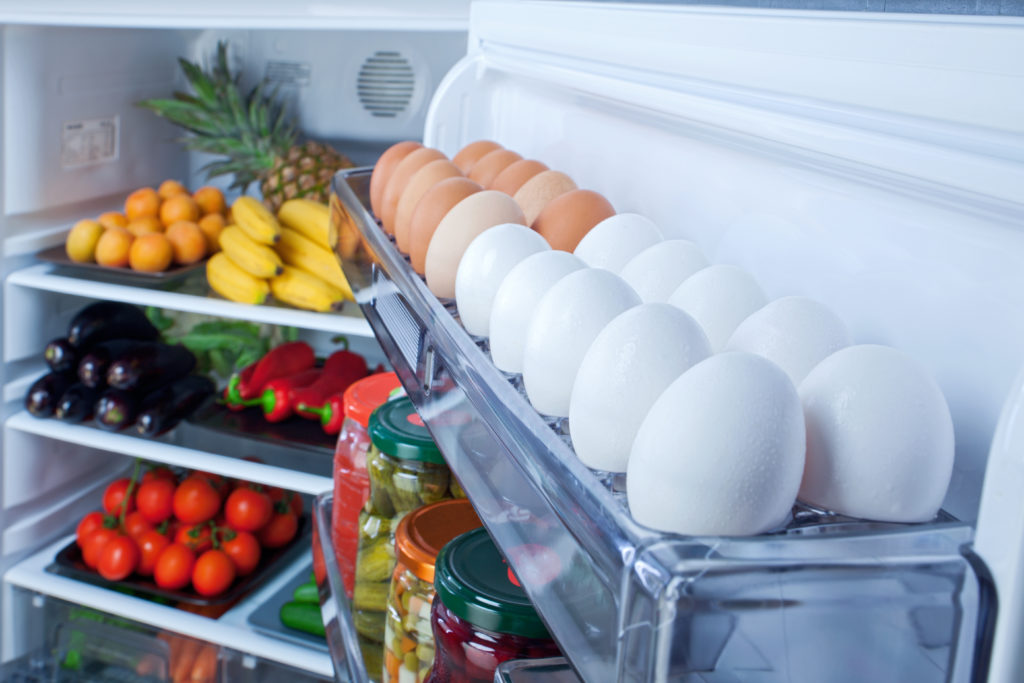What Are The Best Ways to Organise Your Fridge?
- Home /
- News & Advice /
- What Are The Best Ways to Organise Your Fridge?
- March 2nd, 2018
- No Comments
- Posted in advice centre, cooking
Like most things in life, your fridge will run more efficiently if it is well organised. This guide to fridge shelf organisation and fridge layout will help you to optimise your refrigerator – ensuring that your food stays fresher for longer.
Although making sure that you eat food before its use-by date and stacking the fridge neatly is a great place to start, there’s much more to knowing how to organise your fridge for optimal performance and certain rules that you should adhere to. This guide will help you to make sure that your refrigerator works to its full potential and is always organised optimally.
What to store in fridge doors

The doors of your fridge are generally the warmest part, as they’re exposed to the most frequent temperature changes as you constantly open and close them. Because of this, you should store items that are less likely to go off quickly here, such as fresh juice, condiments and water.
Although it’s common to use the trays in the fridge door to store eggs and milk, if you want your food items to last for longer, keep them on a regular fridge shelf, towards the back.
Avoid overcrowded fridge layout
It is important not to overcrowd the shelves in your fridge, regardless of how many good deals are on at the supermarket this week!
In order to keep food cool in the fridge, cold air needs to circulate effectively to avoid areas of warmth developing. As well as causing food waste, overcrowding can cause issues in your appliance. Try putting any leftovers or foods you don’t need immediately into the freezer – which actually runs better when it is packed full!
This is also a good way to keep energy bills down and your fridge in top health, as it won’t have to work as hard to stay cool. Your food will survive for longer and you’ll also be less likely to need a fridge repair in the near future, so you’re saving money all round.
Organising the lower shelves of the fridge
Lower shelves should be reserved for meat and fish, as these shelves are the coldest in your appliance. Putting meat in the lowest shelf also prevents any blood or liquid dripping down onto other items, which avoids the contamination and illness.
Foods that can be kept out

Once you’ve completed your weekly shop, it’s common to put everything in the fridge by default. However, not all food needs to be stored in the fridge. For example, potatoes, onions, bread and fruit can all be safely stored elsewhere, freeing up space for other items.
Food that is in an open tin shouldn’t be stored in the fridge, as this can result in chemical contamination, especially with acidic rich foods like tinned tomatoes or fruit. Anything you wish to keep fresh from a tin should be put into a plastic container first, and then put in the fridge.
Following these rules will have your fridge performing like a champion and could even put a few extra pennies in your pocket, as your food will stay fresher for longer!
If your fridge or any other appliance is showing signs of slowing down, or is perhaps not functioning like it should, feel free to contact us here at Glotech. We can diagnose and fix the problem as soon as possible.
Leave a Reply

